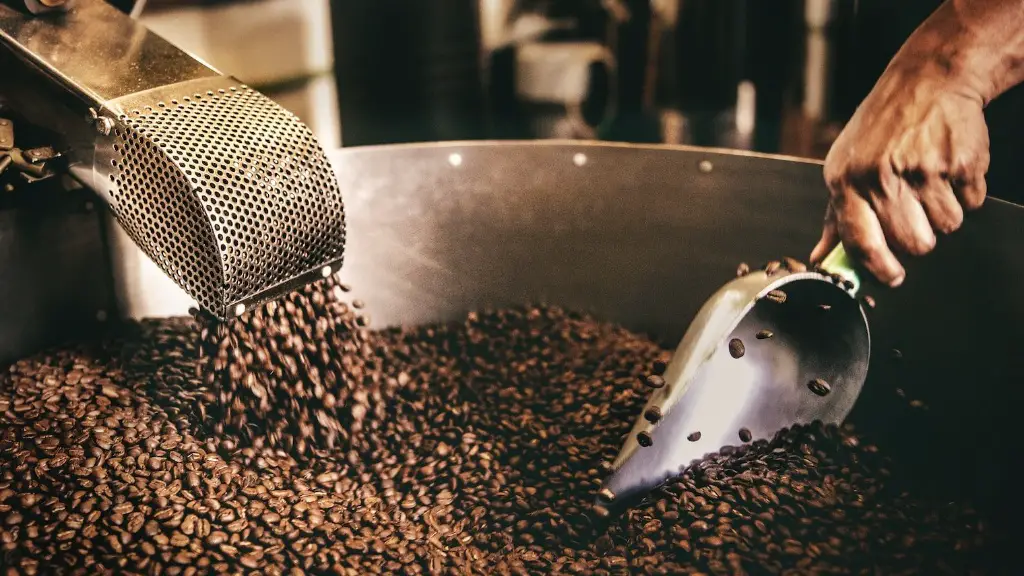When it comes to coffee, the British certainly enjoy their cup of joe, but how much and of what variety? Recent research findings reveal that the British population drinks an average of 3 cups of coffee per day, making it one of the biggest spending nations on coffee in the world. However, the specifics of how much British people drink, what types of coffee they prefer and more can vary significantly depending on where in the UK surveyors looked.
In terms of overall coffee spending, UK consumers spent an average of eight billion pounds on their daily caffeine fix in a single year, making it one of the highest-spending countries in the world. Coffee is one of the most commonly consumed hot beverages in Britain, with 77 percent of the population drinking it at least once a week. But what type of coffee do British people prefer?
Instant coffee remains the top choice in the UK, with 62 percent of people drinking this variety at least once a week. Cappuccinos and Espressos are very popular as well, with 16 percent of people drinking these each week. Other types of coffee drinks, such as lattes and mochas, account for much less of the coffee drinking population, with only 12 percent drinking them regularly.
However, the choice of coffee in the UK can often depend on location. For example, Londoners have been found to have significantly higher rates of drinking cappuccinos, while Northern Ireland makes up the highest proportion of instant coffee consumers. These differences in coffee preferences can often be attributed to culture, with each region in the UK having distinctive tastes and trends when it comes to coffee drinking.
When it comes to café culture, there is no clear answer as to who is drinking the most coffee, as it varies significantly between younger and older generations. Millennials are more likely to be seen frequenting specialty coffee shops, with 56 percent of them drinking at least one cup of coffee from a café every week. However, baby boomers and their older counterparts are more likely to opt for the convenience of instant coffee, with 66 percent drinking this type of coffee on a regular basis.
In terms of price, the UK is known for having some of the highest coffee prices in Europe, with the average price of a latte in London as high as £3.30. This high price tag is mainly attributed to the popularity of luxury coffee shops and their specialty drinks, as well as the traditionally higher taxes on coffee in the UK. Despite the high prices, British consumers still seem to be willing to pay for their daily cup of coffee.
Are British Consumers Willing to Pay the Price for Quality?
Quality coffee seems to be increasingly important to British coffee drinkers, with many consumers opting for premium coffee brands that use quality beans. The increasing demand for quality coffee has opened up the market to a wider range of affordable options, making specialty coffees more accessible.
However, despite the popularity of quality coffee, some consumers struggle to identify the difference between quality and lower-grade coffee. When it comes to taste perception, a blind taste test found that 30% of coffee drinkers couldn’t tell the difference between instant and premium coffee. As such, many British consumers are unaware of the difference in flavour profiles they can get from premium coffee, meaning that they might opt for lower-grade coffee simply out of habit.
How Does Coffee Consumption Vary Across the UK?
When it comes to coffee consumption, the UK varies significantly from region to region. UK surveys show that coffee consumption is highest in London and the South East, where up to 45 percent of adults drink more than four cups of coffee per day. This is closely followed by Scotland and the North West, where 43 percent of adults drink more than four cups of coffee per day.
Meanwhile, coffee consumption is significantly lower in the North East of the UK, with only 33 percent of adults drinking more than four cups of coffee per day. This trend is similarly seen in the East Midlands and Wales, where coffee consumption is 35 percent and 30 percent respectively.
What Impact Will Changes in Coffee Consumption Have?
The changing coffee drinking habits of UK consumers can have an effect on both the environment and local businesses. With the rise of big coffee chain giants, these companies have the opportunity to introduce more ethical and sustainable practices in their businesses. This could range from biodegradable cups to reducing energy costs and water usage in their stores.
The UK’s coffee industry is also evolving, with increased technology allowing smaller companies to compete with big powerhouses. Many local roasters are now able to get their product out to the wider market, giving customers access to more speciality coffees. Therefore, consumers are now more educated about what they are drinking, leading to an increase in demand for quality and sustainably sourced coffee.
The Impact of Speciality Coffee On the Environment
Specialty coffee production has also had an impact on the environment, with the increasing demand for coffee worldwide leading to changes in farming and production methods. Coffee production is particularly impacted by climate change and soil degradation, both of which are becoming a greater risk for coffee producers. Therefore, it’s important to ensure that the UK is sourcing its coffee beans from sustainable and ethical sources, as this will have a long-term effect on the industry.
Specialty coffee also has a wide range of flavour profiles, which can be further explored and appreciated with cupping and tasting. By understanding and appreciating the different flavours of speciality coffee, UK consumers can make better decisions when it comes to their daily cup of joe.
How Has Lockdown Affected Coffee Drinking Habits?
The UK’s coffee drinking habits have been heavily impacted by the COVID-19 pandemic, with many cafes and coffee shops closing their doors in response to social distancing measures. This has had an effect on the overall sales of specialty coffees, as many consumers turn to online retailers or instant coffees to satisfy their cravings.
Additionally, the introduction of the work-from-home lifestyle has had an impact on coffee consumption, as employees no longer have the same access to their office’s coffee bar. This means that employee coffee consumption has been heavily impacted, with some UK companies now offering complimentary coffee subscriptions to their employees.
Are People Becoming Health Conscious About Their Coffee?
The growing trend of health and wellness has also had an impact on the UK’s coffee drinking habits, with many consumers now opting for healthier alternatives to their coffee. This can include anything from switching to coffee alternatives such as matcha tea to changing their milk type from cow to plant-based milks.
Overall, the trend of health-consciousness is steadily increasing, with more and more consumers looking for sustainable and healthier options when it comes to their coffee. This has led to a surge in demand for speciality coffee that is ethically sourced, sustainably grown and organic.
Are There Other Alternatives to Traditional Coffee?
As coffee consumption has grown in the UK, so too have other alternatives to the traditional cup of joe. Coffee alternatives have become popular among those looking for a healthier option or simply a change of pace. Some of the most popular coffee alternatives in the UK include matcha tea, kombucha and cold-brewed coffee.
These options can provide consumers with a different flavour and texture experience than traditional coffee and can often be served at a fraction of the cost. For those looking for a caffeine fix without the jitters, coffee alternatives can also provide a great way to satiate cravings without the side effects.
Conclusion
When it comes to coffee consumption in the UK, British people are known to be big fans of the beverage, spending eight billion pounds on it each year. Coffee consumption can vary significantly between different regions of the UK, with trends shifting towards quality, convenience and health-conscious choices.
The COVID-19 pandemic has also had an effect on the UK coffee market, leading to an increase in online sales, delivery services and coffee alternatives. As consumers become more aware of the environment and sustainability, speciality coffee suppliers have the opportunity to showcase their products to a wider audience.





